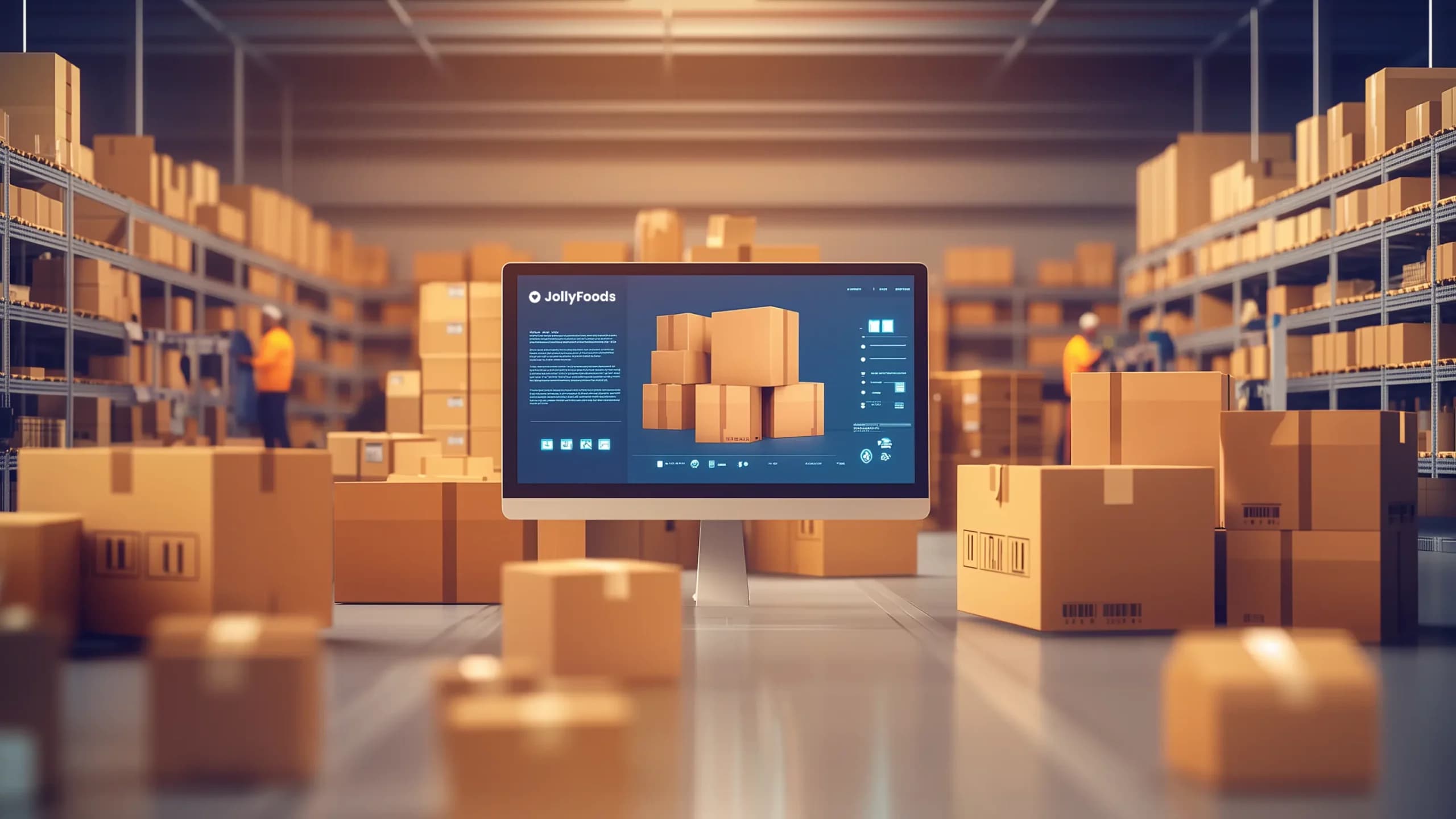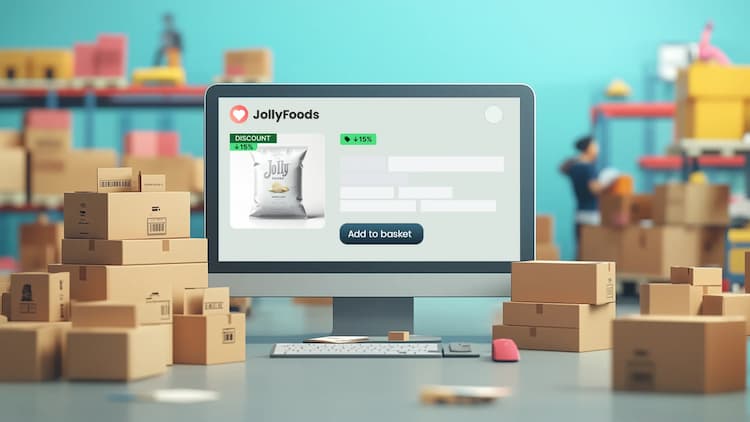What is an E-Wholesale Solution?

Summary
Table of Contents
What is E-Wholesale?
Key Benefits of E-Wholesale Solutions for B2B
How E-Wholesale Solutions Support Modern Wholesaling
Choosing the Right E-Wholesale Platform for Your Business
Features to Look for in a Digital Wholesale Solution
Examples of E-Wholesale Solutions in Action
Future of E-Wholesale: Trends and Innovations
What is E-Wholesale?
Organised by the continuous development of informational technologies, the wholesale industry has quickly integrated itself into online and digital formats, with e-wholesale solutions as the main instruments for B2B activities. These solutions are web-based applications and mobile applications built for the specific needs of wholesalers, such as inventory management, order tracking, and efficient and effective customer communication in digital environments. As opposed to the conventional activity patterns that involve direct transactions, electronic wholesale solutions mean these activities and allow wholesalers to perform a variety of work more effectively and in a more extensive space. For an overview of transitioning into digital formats, see The Benefits of a Custom Branded B2B eCommerce Website, which covers how custom eCommerce solutions can meet wholesalers’ unique needs.
Key Benefits of E-Wholesale Solutions for B2B
E-wholesale solutions are tailored for B2B requirements most of the time and solution providers may come up with solutions that are pre-built and that are interoperable with an ERP system. Here are some of the primary benefits for wholesalers:
-
- Improved Efficiency and Scalability: Integrated stock control, order operations, and customer relations can be helpful to minimise human interference and make the business efficient.
Unlock B2B-Specific Benefits
Our platform offers features that elevate efficiency and customer service.
- Enhanced Customer Experience: Clients can comfortably search through the services offered by different companies and view orders and specifications in a way that is similar to the seamless interfaces delivered by shopping websites.
- Advanced Data Insights: Logistics companies are able to see their stock positions, customers’ preferences for their products and sales performance whenever they use e-wholesale platforms linked with their ERPs.
How E-Wholesale Solutions Support Modern Wholesaling
Since wholesaling is gradually moving online, more and more companies are using digital wholesale solutions to remain relevant. How these solutions allow wholesalers to be agile when demand shifts, update their catalogue effectively and engage with their customers include;
Some of these web-based e-wholesale solutions are even integrated with ERP solutions since many of them are pre-built with adaptable interfaces, which should not require too much tweaking as a result of which the integration process takes a relatively shorter amount of time than expected. This compatibility is especially useful for companies that want to seamlessly integrate digital into their Processes from more conventional methods without incurring huge interruptions.
Choosing the Right E-Wholesale Platform for Your Business
In a world where there are many choices, wholesalers should ensure they select an e-wholesale platform that best suits their overall goals. Here are some factors to consider:
- ERP Compatibility: Currently, good e-wholesale platforms can easily connect with various mainstream ERP systems to synchronise inventory, customers, and accounting.
- Customisation and Scalability: However, as you ascend through the ladder from basic ideas, consider platforms that can scale up, handle increasing orders, and cater for more complicated customers.
- User-Friendly Interface: A simple design not only improves your customers’ interactions but also cuts down the time you will have to spend to assist your staff and customers to familiarise themselves with the complicated user interface.
For guidance on choosing business software, explore Exploring Wholesale Ecommerce Platforms: Strategies to Elevate Your Business, which provides steps for setting up a compliant and functional business structure.
Features to Look for in a Digital Wholesale Solution
Indeed, effective solutions in the sphere of digital wholesale have definite qualities that help to facilitate business-to-business sales and cooperation. Key features include:
- Real-Time Inventory Management: Real-time stock data can help business firms control demand, mitigate the risk of stockouts, and serve the customers.
- Flexible Payment and Order Options: While using their credit cards, clients may make payments at varying intervals and in varying amounts. An efficient system in e-wholesale must include executable payment options to satisfy different requirements.
- Efficient Order Management System: Flexible order management means that there are few possibilities for delays and mistakes, and businesses can monitor their orders throughout the process.
Examples of E-Wholesale Solutions in Action
Numerous B2B enterprises have gained from the e-wholesale solutions that turn difficult disclosure into smooth processes. For example:
-
- Integrated ERP Systems: Some companies engage in e-wholesale and use a system that connects with the company’s ERP in areas of storage, distribution and even sales data.
Real-World Solutions at Your Fingertips
Our app provides mobile and web-based B2B sales solutions.
- Mobile and Web Apps for B2B Sales: It means that today’s B2B wholesalers can present their clients with mobile applications and websites where purchases can be made, stock cheques can be requested, and returns initiated. This is important because it keeps clients who prefer to monitor order processing online.
To know more about How to Increase Sales in eCommerce B2B Wholesale? Check our blog post!
- Digital Catalogue Management: It allows forgoing the conventional creation of print-based catalogues for sharing actual catalogues inside the e-wholesale platform, which can be easily updated while guaranteeing that all clients deal with the updated product offering view.
Future of E-Wholesale: Trends and Innovations
As e-wholesale solutions continue to evolve, here are some trends that are shaping the future of the industry:
- AI-Enhanced Demand Forecasting: For instance, in sophisticated e-wholesales systems, AI is employed in terms of identifying demands for certain products to enable change of strategies in advance.
- Mobile-Optimised Platforms: The purchase of sales and usage of mobile devices have risen significantly and e-wholesale solutions that are fully compatible with mobile devices are crucial for managing operations and interaction with the customers at any time.
- Sustainable Practices: It is increasingly common for organisations to employ technologies promoting environmental responsibility such as sparing paper documentation, and providing environmentally friendly delivery services.
For insights into future eCommerce trends, read B2B Wholesale E-Commerce Ready Trends Guide , where we discuss innovative approaches in digital transformation.”
Conclusion
All in all, the appropriate e-wholesale channel can provide from linked ERP capabilities to portable application convenience to serve B2Bs to transform into a more effective and client-oriented model. In effect, through technology adoption by wholesalers, they not only create a competitive advantage for their business but are also well positioned to harness the rapid change in the business to the B2B market to shape future success.
Related Articles
Industry news straight to your inbox
Get the latest commerce news, trends, and strategies to grow your business
Subscribe to newsletter
By submitting this form, you agree to receive promotional messages from Simplisales


